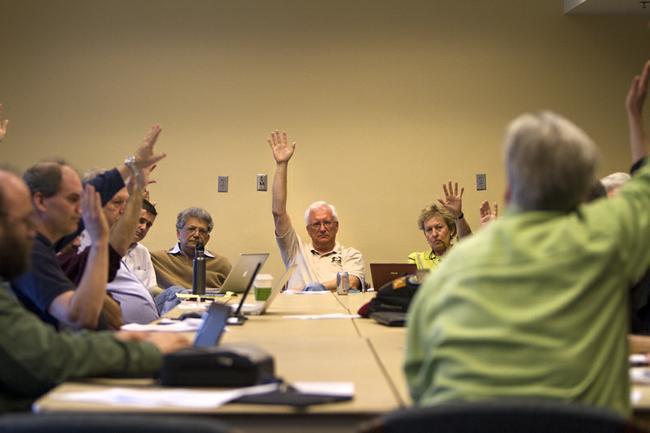_Editor’s note: The written Diversity Intensive Course Requirement Proposal passed by Faculty Council is attached in the sidebar to the right as a downloadable PDF. The document contains a list of about 160 courses that could fulfill the 3-credit-hour diversity requirement._
The product of years of debate and amendments, a diversity course requirement proposal passed through Faculty Council on Thursday.
Members also discussed the next step of the smoking policy to be implemented later this year and changed capstone requirements. A large part of the meeting was spent discussing the details of the Diversity Intensive course requirement.
The proposal, which will go before the UM System Board of Curators for final approval, requires students to fulfill a 3-credit-hour minimum of diversity education. The written proposal passed by faculty members contained a list of classes that could end up qualifying as “diversity intensive” courses, including Culture of Communication, African American History and Urban Geography and about 160 other courses.
“We’re living in a very diverse world,” Academic Affairs committee chairwoman Victoria Johnson said. “We want to prepare students for a diverse market. It will also help improve campus and social interactions through the program. Sometimes students do abusive actions toward people different than them. It will help improve the campus climate.”
According to the Diversity Intensive Course Requirement Proposal, the incorporation of a Diversity Intensive requirement will help students view complex worldviews, policies and issues from different perspectives, analyze cultural myths and stereotypes of minority groups and communicate with other social groups with an open mind.
“It double dips into other courses such as humanities courses,” Johnson said. “It is not adding any new courses.”
The proposal outlines the criteria all Diversity Intensive courses will meet. The first is that courses will focus on understanding different social groups on a local, national or international level. The second is that courses will explore a broad definition of social inequalities.
During the meeting, faculty also discussed the next step of MU’s smoking policy, which will be implemented in July.
“A map will be made available to the public that shows where designated smoking areas will be,” Intercampus Faculty Council representative Bill Wiebold said. “Most of those areas will be parking lots and the top floor of parking garages. Some spots without parking lots are also indicated on the map, such as Lowry Mall.”
Wiebold said this step of the plan will be implemented for two to three years in order to prepare smokers to the transition of a smoke free MU. No fines or punishments are outlined to enforce the spaces, but if multiple complaints come from an area, the police will be informed.
Faculty members unanimously decided to change senior capstone course requirements as well, because a capstone class or seminar does not work for all of the schools on MU’s campus. The wording for the proposal was amended to avoid confusion.
“Any department can use a capstone course or a 4000-level course to meet the capstone requirement,” Johnson said.








